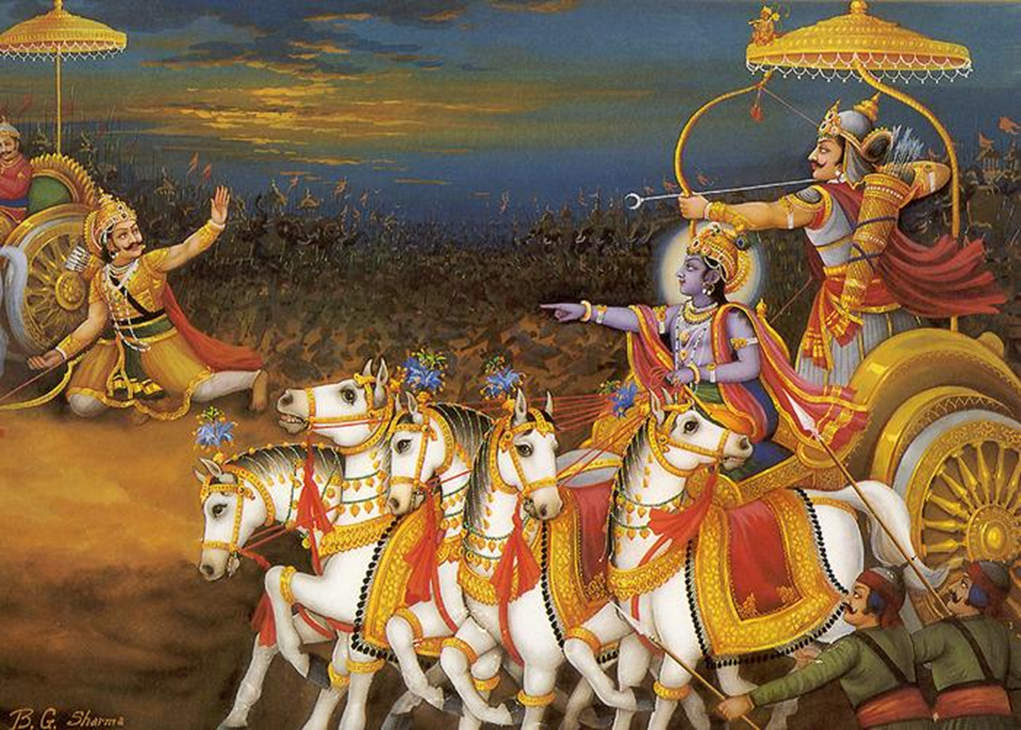Types of disputes, IDA 1947
TYPES OF DISPUTES UNDER INDUSTRIAL DISPUTES ACT, 1947
Important terms Disputes by Employers: Lockouts, Layoffs, Retrenchment Disputes by Employees (or Boycott): Strikes, Picketing, Gherao Disputes between: Employer vs Employer Employer vs Workmen Workmen vs Workmen Authorities: Conciliation officer Boards Courts Tribunals
INTRODUCTION
Industrial disputes act 1947, has an important objective
of removing the conflicts between, Employer vs Employer, Employer vs Workmen,
Workmen vs Workmen. Also defining the type of disputes, process of doing Strikes
& Lock-outs, Layoff & Retrenchment. Procedures of running the
industry in smooth manner, penalties, financial aids, avoiding un-lawful
labour practices, types of authorities, items added in schedules.
|
|
|
|
Great Warrior Karna defeated by Arjuna,
Shalya who is the charioteer of Karna refused to check the wheel of chariot,
hence great strike refusal of duty conducted in Mahabharata, which lead to
defeat to the son of Suryaputra and Kunti. |
Great
Bombay Mill strike which led to the revolution of creating the Labour laws,
including Industrial Dispute act 1947 |
History
Ever since during ancient ages, employees with employers has smooth relations. Employees want to serve their employer (master) whatever the situation may arise. Employer or Master will be always ahead to resolve the conflict before even it arises. Way of life embedded with this relations.
Types of employment in ancient India
India has employment mostly with the agriculture, this agrarian type of society taught its every citizen about the habits of cultivation, science of farming, animal husbandry etc., Even though
there are practices of slavery, employees enjoyed their work under the
leadership of employers.
Also Employers become protectors of their own
employees. Either employees got the huge loan from employer and working until
its clearance, else working for daily wages (coolie).
There are accounts about the Varnashram has been
followed according to their Varna, but dignity of labour is always appreciated
in India. ---------------------------------------------------------------cost of which will be borne by the employee” “The employer has the right to disqualify the
work, for the purpose of calculating the wages due, which is not done at the
right time or place or in the right way.”
By Kautilya in Arthashastra
Disputes in Medieval period There are no perfect accounts on particular to
labour disputes during the medieval period. Employees fanaticized their
employers or masters. Being in one house they made their leaders great. Also
giving their 100% to their masters, taxes has been paid to their masters
accordingly.
Disputes in Moghul Period During Moghul period, slavery has been
continued, even though there is a harmony in a caste system, through religious
differences there are many disputes has been arised and started. Ruling class
started depressing the wages, but tolerant attitude towards labour was
increased. Due to major trades, people started practicing different skills like
manufacturing clothes, dyeing, printing, copper works etc.,
It is common affair that there is a delayed payments
to workers, paying the salaries through providing their old clothes, only basic
rates seems always fixed money,
Different types of labours in Mughal India,
Women assisting in cultivation, men doing agriculture, artisan, weaving etc., |
Sources from vedic through ancient India, we get it from Svamipala Vivada (Employer-Employee disputes), Abhupetyaasurusa (Breach of service), Manusmriti (Division of labour) etc., Division of labour in Ancient India About Labour “Labour should seek the job security, strings
and sanctions to address the moral hazards” “Emphasis the fairness of incentives for his
individual needs” “Salaries to be provided according to grade” About disputes and resolutions “Multiple modes of conciliation” About Employers “If the employee fails to complete the work as required from him then employer can have it completed by some body else, the |















No comments
Post a Comment